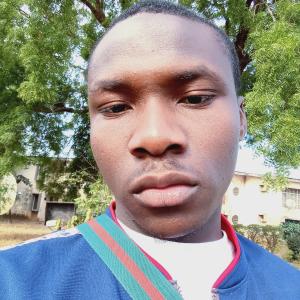Early in his journalism career, Nigerian campus journalist Muhammed Bello struggled to access helpful reporting tools and career-enhancing mentorship. He lacked experience working alongside established journalists, too.
He’s not alone: many journalism students in Nigeria don’t have access to resources that will help them further their careers. They tend to work at university outlets with little guidance from experienced media professionals.
Many students, as a result, are unaware of opportunities available that can help them improve their reporting. “I didn't even get to attend trainings, and opportunities didn’t present themselves to me as I had anticipated,” said Bello. “I was working on a piece I knew had international appeal but was unable to [find] an editor to pitch [it to].” He eventually stopped working on the piece.
Journo-Geekology
To fill this gap, in 2021, having recently obtained his first international byline with Vice, University of Ilorin student Olatunji Olaigbe created a WhatsApp group to help young journalists connect with established reporters.
Called Journo-Geekology, Olaigbe’s WhatsApp group offers a forum where members can discuss journalism-related topics and share career opportunities.
“The primary focus was sharing and discussing journalism works that we found interesting, and providing resources for young, up-and-coming journalists like myself,” said Olaigbe. “Our key choice was WhatsApp primarily because in Africa, it’s a pretty important social media platform, but it was [also] perfect for the structure we were looking for.” Both established and emerging journalists use WhatsApp, he added.
Bello, having shown early interest, joined the group the year it was created. “I joined Journo-Geekology because Olatunji knew I was actively seeking every opportunity to be better,” he said. “I believed joining a community of journalists would help me grow.”
As Journo-Geekology grows, Olaigbe recognizes the importance of responsibly vetting group members. “The fear has been that if we blindly add people, we’re going to lose the close-knit effect and definitely add ghost (unresponsive) members,” he said. Among those in the network today are Nigerian media workers who have international bylines, like freelance journalist Pelumi Salako and Kunle Adebajo, an investigative editor at HumAngle.
Sharing a space with their role models has been inspiring for younger group members, and it has helped them better relate to their more established peers.
“I think there's something [about] being in the same group as people you've always admired does to you as well,” said Adebajo. “You see your role models using funny WhatsApp stickers and emoji reactions and realize, they are just like me and I can be just like them.”
The more experienced editors in Journo-Geekology also provide feedback to their younger colleagues. “The group isn't just a place for accomplished writers to reflect beams of ego and widen the margin between them and others in the industry; the vibe is different,” said Adebajo. “You find editors advertising roles and writing gigs, giving members of the community an opportunity to pitch, while knowing they have [an] editor's ears.”
Activities and events
A few months after creating the group, Olaigbe invited Allyn Aglaïa, an editor at Inkstick Media, for a conversation about their journey to becoming a journalist, their writing process and the journalism resources they use. The discussion was held via text, and members were able to ask Aglaïa for advice and gain insight into the world of journalism.
“I was very impressed with the energy of the group, the depth and precision of the questions and the level of preparedness Olatunji and others brought to the discussion,” said Aglaïa. “I think collective self-organized study is such an incredible, generative way to learn and grow.”
Journo-Geekology also holds in-person journalism events and gatherings. “Our first hangout, [a potluck], was funded by Big Cabal Media. The second time, we partnered with UCJ [Union of Campus Journalists] Unilorin where upcoming and campus journalists could also be given a platform to discuss journalism [terminologies],” Olaigbe said. “We always make sure there’s no barrier of entry for these hangouts, because that’s the whole point of having Journo-Geekology in the first place – to bridge the gap between the young and the great.”
A few months after Journo-Geekology held its first conversation, several young group members, including Bello, got their first bylines. Olaigbe himself has also benefited from the group: in 2021, he won the International Organization for Migration Journalism Award, a contest he came across in Journo-Geekology.
“I like that members often share links to articles they're reading alongside brief personal notes. That's the highlight for me,” said Adebajo. “I also enjoy the conversations and arguments. They help me see different perspectives. Whatever the group was set up to achieve, it's doing it. I hope it gets bigger with more and more people having access [to it], but perhaps the secret to its effectiveness is its coziness.”
Photo by Dimitri Karastelev on Unsplash.


